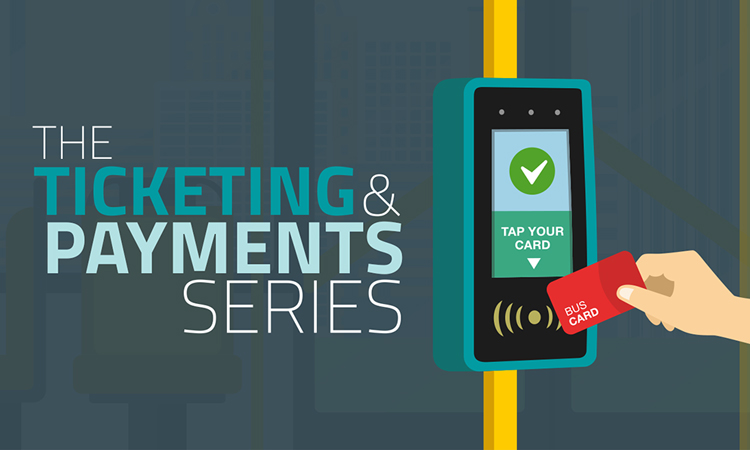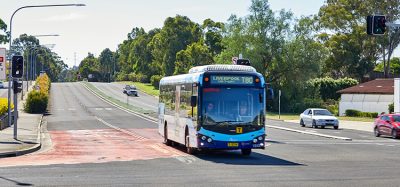The field of ticketing: from open standard to open source
- Like
- Digg
- Del
- Tumblr
- VKontakte
- Buffer
- Love This
- Odnoklassniki
- Meneame
- Blogger
- Amazon
- Yahoo Mail
- Gmail
- AOL
- Newsvine
- HackerNews
- Evernote
- MySpace
- Mail.ru
- Viadeo
- Line
- Comments
- Yummly
- SMS
- Viber
- Telegram
- Subscribe
- Skype
- Facebook Messenger
- Kakao
- LiveJournal
- Yammer
- Edgar
- Fintel
- Mix
- Instapaper
- Copy Link
Posted: 27 February 2019 | Joël Eppe - SNCF, Philippe Vappereau - Calypso Networks Association | No comments yet
Philippe Vappereau, from RATP’s General Director for Services, Marketing and Customer Experience and President of Calypso Networks Association, and Joël Eppe, SNCF’s Ticketing Director, explain why these two entities actively support the development of a new project in the field of ticketing.


Coming from a rather closed technical environment, transport ticketing is mainly based on proprietary solutions provided by specialised manufacturers. Operators, on the other hand, need to upgrade their systems regularly to offer new services to passengers and improve their financial performance. Increasingly driven by digital technologies, ticketing, which was stable for decades, now evolves at the speed of the digital age. The conjunction of solutions being closed and the increasing need for evolution lead inevitably to a deadlock.
This issue is familiar to major transport operators, such as RATP and SNCF, which have long chosen to rely on open standards and international norms to keep control of their ticketing systems. In the absence of applicable de jure standards, they joined forces to develop them. This was the case for the Calypso standard created 20 years ago in its initiative with a group of transport operators within the Calypso Non-Profit Association, which has grown over the years. This de facto standard is now used in 125 cities and regions around the world.
These two operators share other common concerns, in particular the size of their systems, which requires them, in compliance with their purchasing requirements, to rely on a wide range of suppliers. For example, ticketing at SNCF is based on five suppliers, covering 11 types of terminals. There is also a geographical diversity, and SNCF needs to adjust to local constraints set by the transport authorities in every region.
Shared ambitions, from door-to-door to MaaS
Sustainable door-to-door mobility fosters the emergence of many new players offering innovative mobility solutions. They must complement traditional public transport if they are to provide sustainable and genuinely useful services. This has driven the need to connect these services together to provide a coherent mobility offer, which is the principle that guides the concept of Mobility-as-a-Service.
Ticketing is the key to the making mobility services work together, as it should facilitate the transition from one form of mobility to another seamlessly and contribute to the attractiveness of services through an adapted fare offer.
RATP and SNCF share the view that, for the Mobility-as-a-Service dream to come true at a reasonable cost, the ecosystem must be based on standards, APIs and open technologies as much as possible. This opening has been a reality for several years in the field of passenger information services and has given rise to a wealth of attractive applications, thanks in particular to open data. To allow ticketing to follow the same path, these two international groups actively support opening initiatives, such as that of Calypso Networks Association, which has provided the first fully open source ticketing API free of charge: Eclipse – Keyple.
Leading the way to open source
Keyple offers a concrete and operational answer to two key issues: mastering ticketing systems and providing a simple and fast access to Calypso to new mobility players, especially as part of MaaS schemes. It will become easier to develop connected and interoperable services combining all forms of mobility: metro, train, tramways, buses, park & rides, bike-sharing, car-sharing, car-pooling, e-scooter-sharing, etc.
Intelligent Transport‘s Ticketing & Payments Series 2019


Keyple aims at accelerating the integration and development of high-performance ticketing applications. It will enable mobility stakeholders, event organisers, sports, cultural and leisure infrastructure managers to easily and economically implement ticketing systems based on a common, open and modular platform, whilst keeping Calypso’s fundamental characteristics of reliability, security and interoperability.
Technically, it is a library of functions, available in Java and C++ that allows developing ticketing applications to communicate securely with Calypso media (NFC smartphones or cards). It provides developers with a generic interface that automatically manages Calypso transactions. It is available in several OS environments (Windows, Linux, Android etc.) and can interface with standard readers (PCSC) and proprietary environments linked to specific hardware. Keyple can be used in both card-centric ticketing architecture schemes and server-centric schemes (account-based ticketing), where customer rights are stored on back-office servers.
Using Keyple thus considerably reduces development time, avoiding both implementations specific to each environment and the need to master Calypso’s complex secure session mechanisms.
The project is hosted by the Eclipse Foundation, which guarantees strict compliance with open source rules. It is therefore accessible to everyone free of charge with the only condition that any modification of the source code must made available to the community. This allows a documented access to the source code, and therefore everyone can optimise its use in specific contexts. Developers can interact with the Keyple user community and contribute to product improvements. In addition, the requirement to provide open source software for IT services has been incorporated in the new procurement policies of major groups such as RATP and SNCF for several years.
Keyple offers the best guarantee of technical and financial efficiency, full control of its ticketing system and a real independence from equipment suppliers. As public transport operators, RATP and SNCF are committed to ensuring that future MaaS platforms are as open and inclusive as possible, so as not to be locked into a few large private players.
Biographies




Related topics
Multimodality, Passenger Experience, Sustainable Urban Transport, Ticketing & Payments
Related organisations
Calypso Networks Association, RATP Group, SNCF
Related people
Joël Eppe, Philippe Vappereau








